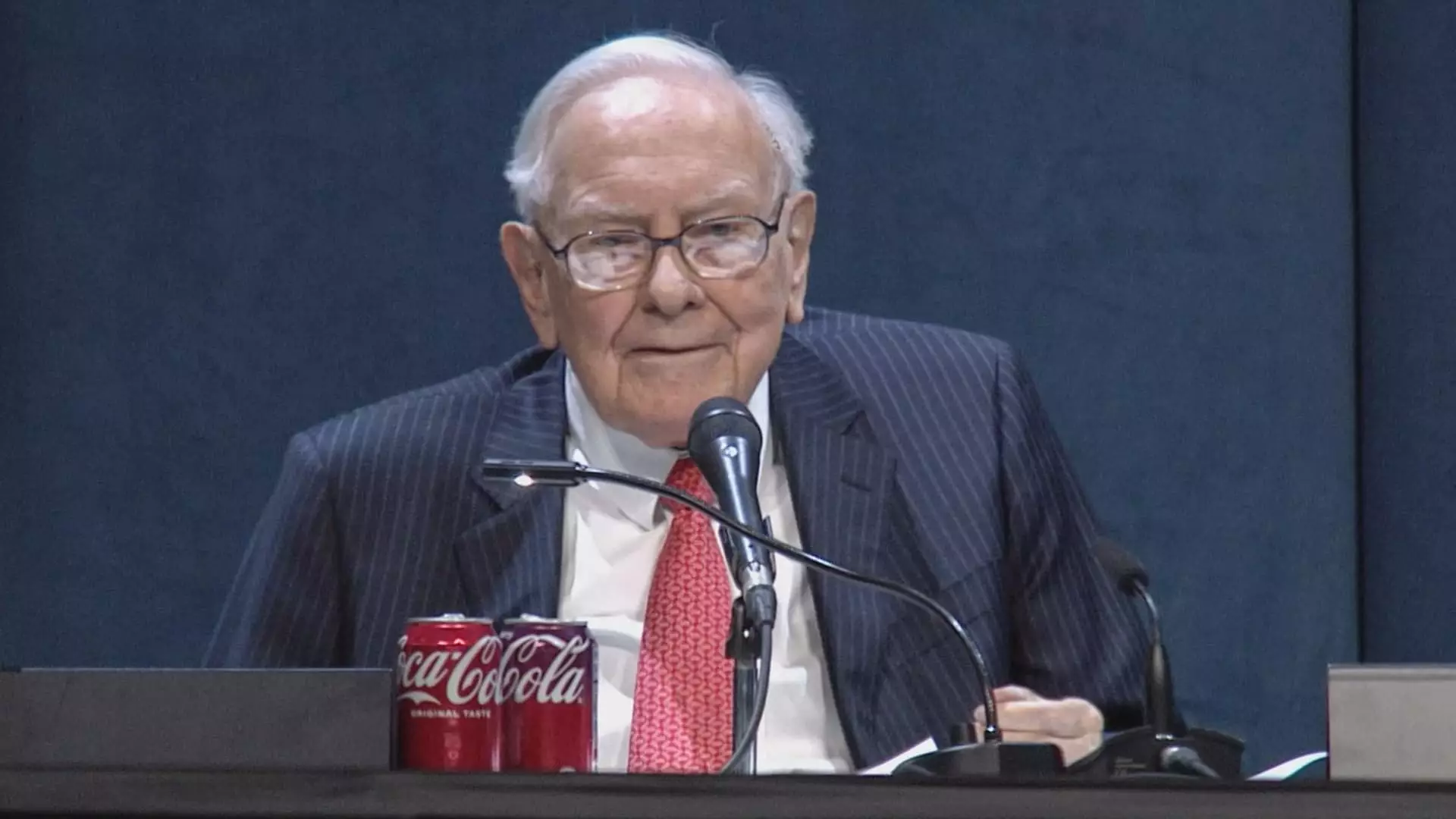In an era where market confidence is often driven by superficial indicators, the recent disclosures from Berkshire Hathaway serve as a sobering wake-up call. While the conglomerate reports only a modest 4% decline in second-quarter operating earnings—down to $11.16 billion—the underlying implications threaten to destabilize the broader economic landscape. The narrative of resilience masks the deepening fissures caused by ongoing trade tensions and shifting geopolitical strategies. It is essential to recognize that these figures are not mere snapshots of performance—they are symptoms of a fragile recovery precariously perched on a foundation of uncertain international relations.
Berkshire Hathaway’s performance across its diverse portfolio illustrates that not all sectors are equally resilient. Insurance underwriting faced setbacks, yet other divisions such as railroads and energy experienced gains. This uneven terrain underscores the unpredictable nature of economic stability in a world fraught with external shocks. More critically, such minor fluctuations are unlikely to fully capture the impending storm—the long-term effects of rising tariffs and mounting trade disputes could undermine decades of growth, setting a precedent for future economic volatility.
The Political Arena’s Pivotal Role in Economic Destabilization
At the heart of this uncertainty lies a political landscape characterized by protectionist policies and unpredictable international negotiations. Berkshire Hathaway’s outspoken warning about President Trump’s tariffs reveals a stark reality: American businesses face an environment where policy decisions are increasingly disconnected from economic fundamentals. The conglomerate’s candid acknowledgment that “considerable uncertainty remains” signals a deeper malaise. It is precisely this ambiguity that can deter investment, stall innovation, and erode employer confidence in the long run.
This political tension is not a passing concern; it’s a fundamental threat to the American capitalist model predicated on free enterprise and open markets. While some may argue that tariffs are necessary for protecting domestic industries, the risk is that such measures engender retaliation and prolong trade conflicts. The result could be a sustained decline in corporate profitability, employment, and broader economic stability. Berkshire Hathaway’s warnings serve as a microcosm of a broader dilemma—can policymakers recognize the peril and recalibrate their approach before economic resilience is permanently compromised?
The Self-Defeating Myth of Cash Reserves as a Safety Net
Despite its massive cash hoard—over $344 billion—Berkshire Hathaway’s decision not to buy back shares in the face of a more than 10% decline suggests a fundamental misunderstanding of prudent business strategy. Cash reserves are often romanticized as a safety net, yet in an economy plagued by escalating policy risks, hoarding capital offers little protection. Instead, it may signal hesitation, staunching entrepreneurial dynamism at a time when decisive investment could potentially counteract the negative trends.
Buffett’s impending transition underscores a broader existential question: will Berkshire, under new leadership, effectively navigate the storm? The silence around aggressive share repurchases or strategic investments hints at a cautious stance unlikely to foster recovery in volatile times. As economic policies continue to sway unpredictably, a conservative approach rooted solely in liquidity can become a liability, leaving American corporations ill-equipped to capitalize on any nascent opportunities amidst the chaos.
A Stark Reality: The Unseen Cost of Political Myopia
The central concern is not merely the current economic figures but the trajectory they portend. The prolonged conflict between economic pragmatism and political populism risks undermining America’s competitive edge. Protectionism, while appealing to nationalist sentiment, imposes hidden costs that future generations will have to bear. The shift in leadership at Berkshire Hathaway reflects an industry-wide realization: aging visionaries may no longer have the political capital or clarity of purpose to steer the nation through these treacherous waters.
In the broader context, this scenario exposes a painful truth—short-term political gains and protectionist policies often eclipse the strategic investments necessary for sustainable growth. The collective failure to address these systemic issues risks precipitating a decade of stagnation or worse, a decline that could be felt across industries and communities alike. It is incumbent upon forward-thinking leaders, regardless of their political stripe, to recognize the peril of neglecting the structural reforms essential for America’s economic vitality.

